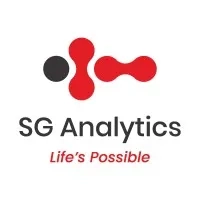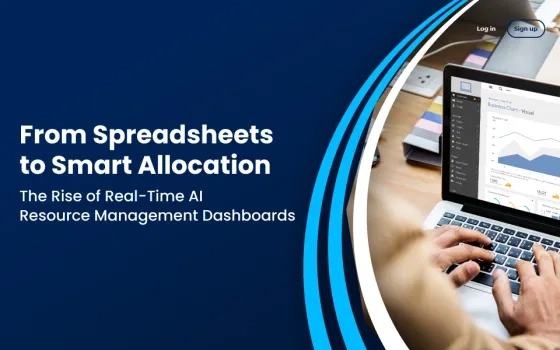The internet has enabled individuals from distinct academic, professional, and financial backgrounds to upgrade their skills and seek better career opportunities. While e-learning platforms enjoy a rise in the demand for remote training and certifications, correctly optimizing the courses for learners is a challenge they must overcome.
Thankfully, relevant analytical models and data aggregation tools simplify their job. This article will discuss how edtech companies can use big data analytics to address these issues.
A Brief Introduction to Edtech and Big Data Analytics
1| What is Edtech?
Educational technology, or Edtech, collects all the use cases involving web connectivity, electronic devices, and remote interactivity features to deliver learning outcomes. So, brands like Coursera, Udemy, LinkedIn, Google, Facebook, and many more develop proprietary skill development programs to make edtech accessible worldwide.
Related: Top Data Analytics Certification Programs to Explore in 2023
Each edtech enterprise teaches students from developed and developing countries using appropriate instructional methods. Besides, some online trainers conduct professional workshops lasting from a few days to more than six months. These educational activities must ensure that learners accomplish the expected goals.
However, manual supervision is infeasible amid the continuous rise in individuals preferring remote or distant learning modules. Therefore, big data analytics, automated multilingual support, and real-time performance monitoring are integral to succeeding as an edtech facilitator platform.
Examples of Edtech Companies and Their Offerings
-
Duolingo, an American organization, delivers over 40 foreign language learning modules. It is an edtech venture that utilizes a gamification approach. It uses machine learning (ML) to increase learner engagement through course personalization.
-
Chegg offers online boot camps via question-answer sessions. It allows subject experts to register as teachers and grows its presence in developed and developing countries. When a student has doubts or Chegg wants to integrate new topics, artificial intelligence assigns these queries to the suitable educational contractor in the company’s network.
-
GoGuardian leverages usage tracking and modern cybersecurity strategies to protect students from the dangers of the web. Its data analytics can identify and restrict potentially manipulative, suicidal, and unethical content from appearing on a school’s computing resources.
2| What is Big Data Analytics in Edtech?
Big data analytics collects extensive data containing mixed media from public discussion forums, social media platforms, news providers, research journals, industry magazines, and government publications. Later, analysts will use data lakes, machine learning (ML), process automation, and advanced statistical models to extract actionable insights and solve business problems.
Read also: 2023 Forecast: How Are Emerging Data Analytics Trends Shaping Edtech Globally?
Edtech firms can employ big data analysis to identify novel teaching-learning methods and optimize their students’ educational journeys. Still, they must invest in secure and versatile IT infrastructure since the databases developed by a big data analyst comprise structured, semi-structured, and unstructured data objects.
As a result, educational platforms will need help to benefit from the actual potential of big data. They must specify and deploy an effect extract-transform-load (ETL) data pipeline. For example, they can consult an established big data analytics provider to explore how to implement a secure and reliable ETL optimized for e-learning operations.
How Edtech Companies Use Big Data Analytics
The use cases concerning data analytics in education, industrial training, and human resource development vary from platform to platform. However, almost all e-learning ecosystems leverage statistical modeling, insight exploration, and progress-tracking tools to find more meaningful teaching approaches.
Here are the most significant advantages and applications of integrating analytics and ML to impart knowledge.
Use Case #1| EdTech Companies Can Deliver Learning Personalization
Each individual learns at a unique pace. But the conventional schooling system applies a standardized educational model irrespective of students’ interests, innate aptitudes, and career expectations. Using analytics, edtech firms can eliminate this downside, improving the learners’ academic and professional performance.
Modern machine learning and artificial intelligence development have made behavioral predictions possible. Today, commercial organizations utilize them to understand what customers want. Likewise, educators can repurpose user analytics-powered behavior insights to estimate how a child or young adult will adapt to a specific teaching and assessment method.
Personalized learning facilitates a more efficient exchange of ideas, doubts, and teacher-student feedback. For instance, some individuals are better at technical tasks. Meanwhile, others excel at creative activities. Therefore, relevant insights into accommodating distinct natural talents and learning styles are vital, highlighting the significance of edtech analytics companies.
Use Case #2| EdTech May Automate Content Moderation for Learners’ Safety
The unstructured processing in big data analytics for edtech relies on technologies like natural language processing (NLP) and sentiment-based categorization. Therefore, teachers, parents, school psychotherapists, lab assistants, librarians, gym supervisors, and IT administrators can restrict students’ content usage privileges to academic and truthful resources.
Related: The NLP Disruption: Top Trends and Use Cases
The effectiveness of programmatic content moderation and removal is evident by its integration across social and journalistic platforms. Accordingly, several e-learning brands regularly update their databases containing intelligence on frequently demeaning or misleading content types.
Big data analytics, NLP, and machine learning enable edtech firms to identify new manipulative content from many languages. Later, a software application installed on the university’s computers or added to a cloud-hosted training module will compare student-generated texts and images with this data.
If it detects the presence of potentially harmful content, it will remove it while holding the perpetrator accountable through shadow-banning or notifications. Some edtech companies in this industry commit all resources to combat online hate and spam in the leaner community forums.
Use Case #3| Providing Education for Employability and Industry Relevance
Search engines like Google will show over 68 million web pages if you query how many people think their degree is useless. Individuals involved in advanced research, top paygrade jobs, or teaching will likely disagree with these opinions. However, actual humans holding higher education qualifications have expressed identical views.
Treating education as “not only for money” is an ethical and respectable stance. Nevertheless, analytics will reveal that the students and their families bearing the burden of college debt have understandable problems with this attitude.
Besides, educators refusing to address the following dysfunctional characteristics of current schooling systems have accelerated the alienation children and young adults feel.
Read also: Navigating the Great Resignation: Types of Talent that are Driving it
What Causes the Employability Crisis
Reason 1: Memory-based and theoretical over-information increase students’ stress. When they enter the workforce and realize the limitations of what they have mugged up at the university, they lose faith in the education system.
Reason 2: Educators, schools, parents, and universities want to focus on the philosophical concept of all-round development. Although the associated general education matters, it helps nobody in today’s world that demands good vocational skillsets and specializations. So, related market research (MR) reports often highlight a worrisome mismatch between academic curricula and recruiter expectations.
Reason 3: Students select a university major because of family or friends’ suggestions. They must change their approach and seek experienced career guides’ input before wasting their youth on incompatible degrees. Otherwise, they will dislike their degree-relevant jobs and switch industries. Compatibility will affect how long they will last in a job.
Reason 4: Institutions teach students decades-old work standards using instruments they will never use at a modern factory or office. Meanwhile, digital literacy, negotiation, time management, networking, and leadership skills have become “optional” courses. Therefore, genuinely interested students struggle with interviews and communication, exhibiting unemployability. For instance, career opportunities in renewable energy and data science have increased. But employers find it difficult to seek the right talent.
How Will Edtech Analytics Companies Help Solve Employability Challenges?
Thankfully, edtech companies can use big data analytics to remove irrelevant or outdated modules from online learning resources. They can also estimate which skills will lead to more job offers in a target industry and include them in the curriculum. So, edtech brands are in a unique position to put an end to the degree vs. employability debate.
Simultaneously, education technology firms can partner with job and apprenticeship database providers. They can offer natively supported corporate training programs to equip students with practical knowledge. Learners will also comprehend what the recruiters expect from a job candidate.
Big data analytics can augment these facilities through real-time internship monitoring to check several job postings and talent-hunting platforms. After all, unemployability among undergraduates and advanced qualification-holders has much to do with the absence of academia-industry coordination. And edtech businesses must bridge this gap with analytics.
Use Case #4| EdTech Companies Can Conduct More Secure Examination
If teachers and course materials fail to develop the required professional competencies in a student, the student must underperform in the final exam. This student must not have a certificate declaring this individual possesses a specific domain knowledge.
Still, several illegitimate actions have contributed to the rise in unskilled degree and diploma holders. This situation proves that existing performance assessment methods at schools and universities have lost effectiveness and reliability. Moreover, corruption, hacking, identity theft, and poor cybersecurity standards fuel this global exam transparency crisis.
Edtech firms can enable educators and honest students to benefit from advanced firewalls. Whether preventing question paper leaks or academic plagiarism, big data will help them formulate behavioral predictions concerning students’ and exam supervisors’ interactions throughout the assessment.
However, they must ensure they do not threaten either party’s privacy rights. Professional big data analytics providers will collect consent before deploying these exam supervision aids.
Conclusion
A nation’s wealth results from three functional aspects: economic, political, and academic. These areas often overlap. For example, a country’s academic accomplishments contribute to its economic prosperity and political harmony. Edtech and big data analytics can empower academia, corporate trainers, and human resource development (HRD) enthusiasts to extend those capabilities.
















